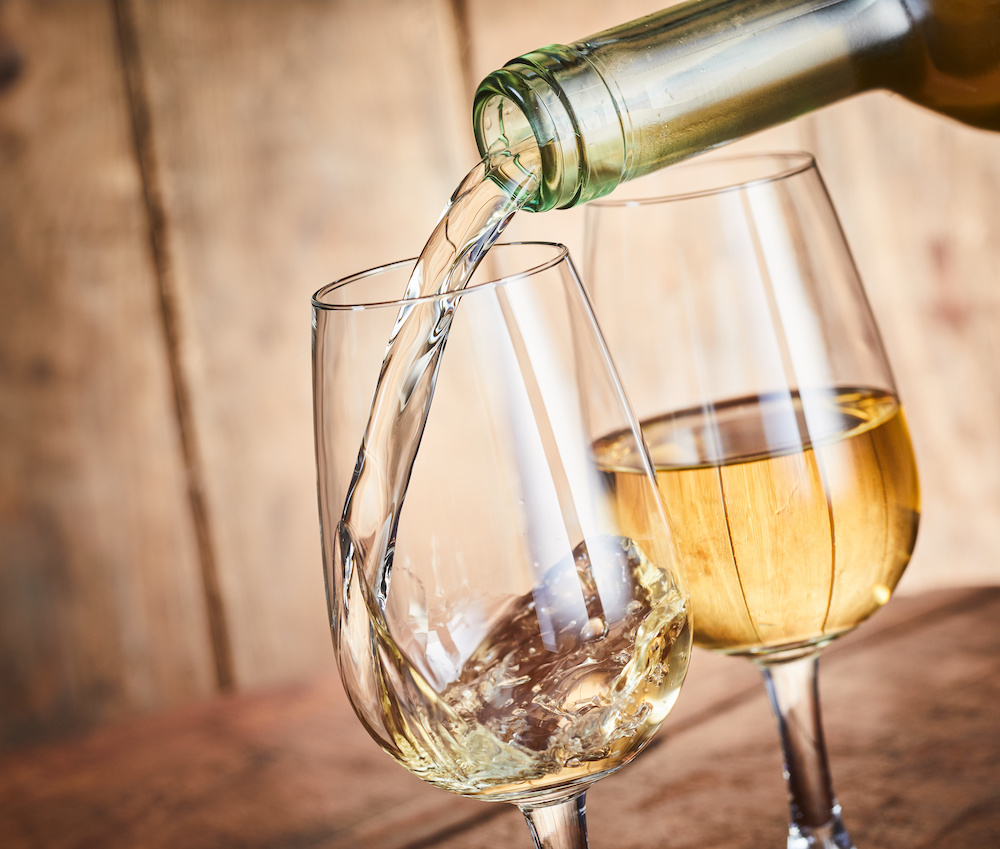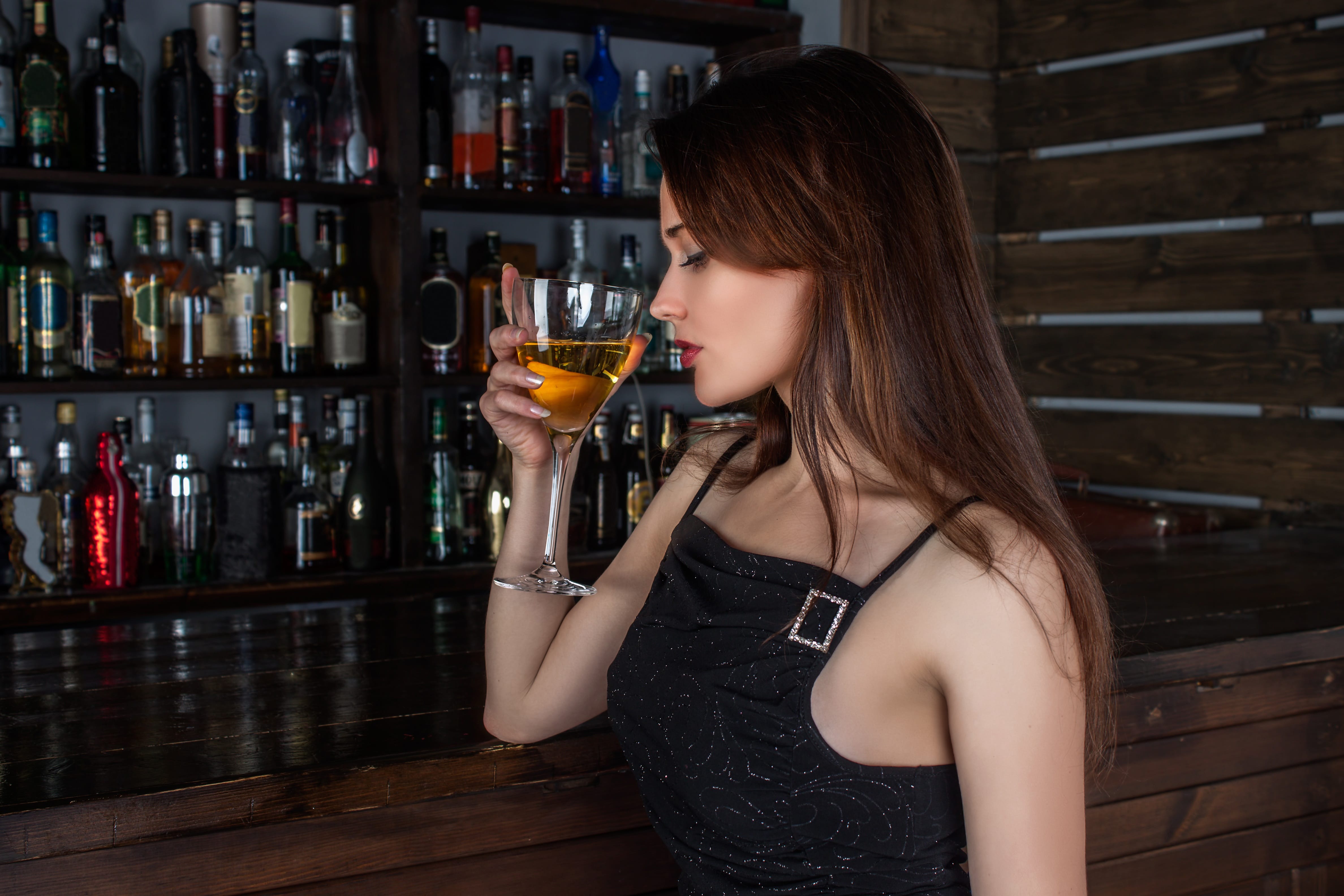How Bad Is Alcohol For Your Skin?

Two wine glasses – effect of alcohol on the skin
As the dust begins to settle on another festive period, life, rather abruptly returns to normal and leaves us pondering what affect all that indulgence had on our body. More often than not, the signs begin to show in our skin, first, alongside the headaches and tiredness that is. So, what affect does alcohol have on our skin? Is there any way we can reduce these effects in the future?.
Try our skin disease search engine here
Alcohol is dehydrating for the skin
The first clear issue is that Alcohol will dehydrate you. Alcohol is a diuretic so, the more you drink, the more you’ll find yourself in the bathroom. Now, we have all experienced and we all know that dehydration can lead to headaches, fatigue and the rest but dehydration also affects the skin? Unfortunately, yes it does! Time and again, studies have shown that higher water inputs will positively impact your skin.
How does dehydration affect your skin?
When skin is dehydrated it can cause a variety of problems from spot breakouts, to irritation and dry patches – all things you may have noticed post beers, cocktail and wine during the festive period.
This is caused by an excess production of oil. When your skin is lacking in water it will create more oil to make up for the missing water. You might even find that your skin feels oily and dry at the same time – not ideal!
Try our skin disease search engine here
Alcohol is full of toxins
When consuming alcohol your body metabolises all those cocktails and beers through an enzyme in the liver – in the process, a byproduct is produced called acetaldehyde. This byproduct is toxic to your body tissues, drying out your skin, priming it for a pimple breakout, and also leaving you prone to premature aging of the skin.
Alcohol is inflammatory
Not only is your liver working hard to process all that alcohol, which is releasing a toxic byproduct, but also due to alcohol’s inflammatory affects, your body is now also producing histamine that dilates your blood capillaries which causes redness in the skin.
Try our skin disease search engine here
Alcohol Induced Eczema and Cystic Acne
Not drinking alcohol and increasing your water intake can negate many of the affects alcohol has on the body. This will flush out those toxins and help you to rehydrate.
There are, however, more serious skin issues that alcohol can exacerbate. Due to the dryness caused by alcohol consumption you may find this causes a flare up for eczema and dermatitis sufferers.
As well as the dryness, alcohol dilates the pores of the skin and this leads to more whiteheads and blackheads. If not treated properly it can go on to cause inflamed skin papules and cystic acne.
Try our skin disease search engine here
Which alcoholic drinks are the least bad for the skin?
Since additives put the most strain on the liver and usually contribute to more dehydration, its best avoiding drinks high in additives. Beer tends to have a lot of added sugar and salt which is not good for your skin and dark liquors tend to have more additives than their clear liquor compatriots so we would recommend avoiding if you have sensitive skin. Ultimately, although opinion is largely mixed, Red wine is arguably one of the best for you due to its high resevratol content – this acts as an anti-oxidant for the tissues and skin and helps rid the body of harmful toxins.
Try our skin disease search engine here
Brad Pitt: The Perfect Example!

Don’t just take our word for it. Let’s use Brad Pitt as a fine example of what alcohol reduction can do.
When Brad Pitt made a surprise appearance at the Golden Globes, fans were stunned by his youthful appearance. Some said he looked 20 years younger. Others speculated that at 53, Brad Pitt had undergone extensive plastic surgery.
But this week, Brad Pitt revealed what may be the real reason he’s looking so good. He quit drinking.
We don’t know for certain if Brad Pitt did anything else to achieve his amazing transformation. But putting the bottle down is a good place to start if you care about your skin. Why? Here are 5 things that happen to your skin when you drink.
1. Alcohol Dehydrates (and Ages) Your Skin
Alcohol accelerates the aging process by dehydrating your body, including the skin—your body’s largest organ. The skin mucous membranes need water to stay active. If you drink too much, dehydration occurs. The damage starts slow, but over time, the result is dry, wrinkled, leathery skin.
The liver works hard to remove toxins from you body and expel them as waste. But when you damage your liver by drinking too much, those toxins remain in your body, causing blemishes and making acne worse. Skin dryness also causes wrinkles and reduces the body’s Vitamin A levels, which are essential for skin cell renewal.
2. Alcohol Interferes with Nutrient Absorption
Drinking too much also deprives the skin of vital vitamins and nutrients. According to peer-reviewed medical journal Dermato-Endocrinology, alcohol limits the absorption of amino acids, minerals, and vitamins. This makes your body less efficient at metabolizing fatty acids.
Do you have abnormally dry skin? Ask a dermatologist today!

3. Alcohol Consumption Inflames the Skin
Consuming alcohol has a negative impact on most of the key nutrients that skin needs to retain moisture and resist inflammation, which is one of the triggers of skin aging. This is why overindulging in alcohol creates inflammation within every system in the body. Over time, continued alcohol abuse can cause facial redness and flushing. It can also lead to skin diseases like psoriasis and rosacea.
4. Drinking Dilates Facial Blood Vessels
Alcohol consumption increases the body’s blood flow. When consumed regularly, it can cause the face’s blood vessels to dilate. Capillaries around the eyes, nose, lips, and ears may become enlarged and may even burst, leaving red spots and spider veins.
5. Drinking Disturbs REM Sleep
Sleep is a vital part of skin recovery. While a few drinks may make you drowsy, drinking too much can trigger a norepinephrine burst. Norepinephrine, itself, is the hormone responsible for wakefulness, excitement, and even stress. When you sleep poorly, it increases. The result is that it’s harder for your skin to heal itself. Drinking alcohol regularly disturbs REM sleep—pushing norepinephrine levels.
Alcohol wreaks havoc on the skin. If you believe you can counteract the damage that comes with drinking too much by eating a healthy diet and drinking lots of water, think again.
Ask a Dermatologist Now
Anonymous, fast and secure!

The Specialist doctor from the University Hospital in Gothenburg, alumnus UC Berkeley. My doctoral dissertation is about Digital Health and I have published 5 scientific articles in teledermatology and artificial intelligence and others.

